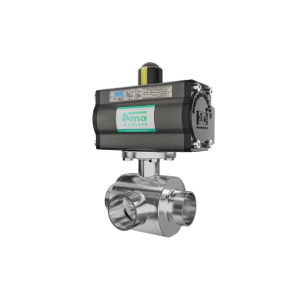Industrial valves play a pivotal role in the seamless operation of process control and automation systems across various industries. As the backbone of fluid regulation, these components ensure that chemicals, gases, liquids, and steam flow precisely where and when they are needed, maintaining optimal operational conditions. In sectors ranging from oil and gas to pharmaceuticals, industrial valves are integral to maintaining safety, efficiency, and environmental compliance.
Enhancing Process Control
Process control systems depend on the accurate modulation of process variables such as temperature, pressure, and flow rate. Industrial valves are engineered to offer precise control over these variables. When integrated into automated control systems, valves adjust in real-time to meet set parameters, ensuring the process remains within designed limits. For example, in a chemical processing plant, a minor deviation in flow rate or pressure can trigger corrective actions by a valve to stabilize the process, reducing the risk of product contamination or equipment damage.
Automation and Efficiency
With the increasing push towards automation, industrial valves have evolved significantly. Modern valves are designed to work in conjunction with advanced control systems and digital interfaces. These valves are not just passive components; they are smart devices equipped with sensors and actuators that provide real-time data feedback. This data is crucial for automated systems that rely on continuous monitoring and adjustment to optimize performance.
In many industrial settings, the integration of valves with supervisory control and data acquisition (SCADA) systems or distributed control systems (DCS) enables centralized monitoring and control. This integration minimizes human intervention, reduces error margins, and enhances the overall safety and reliability of industrial operations.
Importance of Reliable Valve Manufacturers
When selecting components for process control and automation, reliability is key. A reputable valve manufacturer ensures that every valve produced meets stringent quality and performance standards. Companies like 4ma Valves Automation have built their reputation on delivering high-performance valves designed to withstand the harshest operating conditions. Their products are rigorously tested to ensure long-term durability and consistent performance, which is essential in environments where failure is not an option.
The experience and expertise of a trusted valve manufacturer also mean that they can offer customized solutions tailored to specific industrial needs. By understanding the unique challenges of different sectors, these manufacturers can design valves that address specific issues such as corrosion, high-pressure environments, or extreme temperature variations. This customization is vital for industries that operate under stringent safety regulations and where process interruptions can lead to significant financial losses or environmental hazards.
Application in Various Industries
Industrial valves are used in numerous applications, each demanding a high level of precision and durability. In the oil and gas industry, valves manage the flow of crude oil, natural gas, and refined products through pipelines, refineries, and storage facilities. In water treatment plants, they regulate the distribution and treatment of water, ensuring that contaminants are effectively removed before the water is supplied to consumers. In the pharmaceutical industry, valves help maintain sterile environments by controlling the flow of critical fluids, ensuring that products are manufactured under stringent hygienic conditions.
Moreover, in the power generation industry, industrial valves regulate steam flow in turbines and boilers, directly impacting the efficiency and safety of power plants. The ability to control these processes with high precision is paramount, and this is where advanced valve technology shines.
Future Trends in Valve Technology
The evolution of industrial valves is closely tied to the advancements in process control and automation. Future trends indicate a move towards greater digitalization and connectivity. The adoption of the Industrial Internet of Things (IIoT) is expected to further transform how valves operate within automated systems. Connected valves will offer enhanced diagnostic capabilities, allowing for predictive maintenance and minimizing unplanned downtime.
Additionally, energy efficiency will continue to be a driving force behind valve innovation. Manufacturers are exploring ways to reduce energy consumption by optimizing valve design and incorporating more energy-efficient control strategies. With the rising global emphasis on sustainability, these innovations are not just beneficial for operational efficiency but are also critical for meeting environmental standards.
Conclusion
The role of industrial valves in process control and automation cannot be overstated. They are essential components that ensure the safe, efficient, and precise control of fluid dynamics across a multitude of industries. The evolution of valve technology, combined with advanced automation and digital integration, continues to push the boundaries of what is possible in process control. Partnering with a reliable valve manufacturer such as 4ma Valves Automation guarantees that industries receive robust, innovative, and customized solutions that meet the rigorous demands of modern industrial operations. As we look to the future, the ongoing innovation in valve technology will undoubtedly lead to even more efficient and safer industrial processes.












